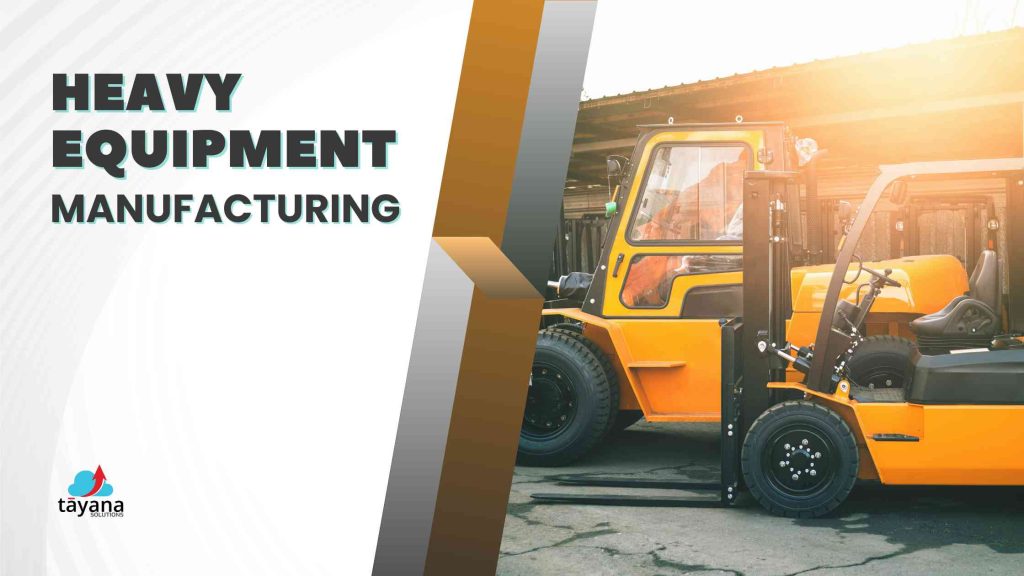The heavy equipment industry plays a vital role in many sectors by providing machinery to increase productivity and expedite the completion of projects. The marketplace for heavy equipment is affected by different trends, including changes in technology and shifts in consumer demands.
In the fast-paced and ever-evolving world of heavy equipment manufacturing, numerous trends are shaping the industry landscape. Heavy equipment manufacturers face several challenges, from technological advancements to changing customer demands and environmental concerns. This article explores some key trends currently challenging heavy equipment manufacturers and discusses how they can navigate these challenges to stay competitive.
Technological Advancements:
One of the foremost trends challenging heavy equipment manufacturers is the rapid pace of technological advancements. Industrialization, artificial intelligence (AI), and the Internet of Things (IoT) are revolutionizing the heavy equipment industry. Manufacturers must invest in research and development to incorporate advanced technologies into their products. Furthermore, they must adapt their manufacturing processes to leverage the benefits of automation and enhance productivity while maintaining high quality and safety standards.
Sustainability and Environmental Regulations:
Environmental concerns are increasingly driving the heavy equipment industry. Governments worldwide are implementing stringent regulations to reduce carbon emissions, promote energy efficiency, and encourage the use of clean technologies. Heavy equipment manufacturers must develop eco-friendly solutions, such as hybrid or electric machinery, to meet these regulations and address sustainability concerns. It is also crucial to implement sustainable practices within their manufacturing processes, such as recycling, waste reduction, and energy efficiency.
Evolving Customer Expectations:
Customers’ expectations continuously evolve, placing additional challenges on heavy equipment manufacturers. Customers now demand equipment that is not only powerful and durable but also user-friendly, technologically advanced, and cost-effective. Manufacturers must invest in research to understand customer needs and preferences and develop innovative solutions that meet these changing expectations. Additionally, providing exceptional after-sales services, including maintenance support and spare parts availability, is vital to ensuring customer satisfaction.
Global Market Dynamics:
The heavy equipment industry is experiencing significant shifts in global market dynamics. Manufacturers face intense competition from both established players and emerging markets. Furthermore, geopolitical factors, trade policies, and economic fluctuations impact market demand and supply chains. To remain competitive, manufacturers must be agile and adaptable, exploring new markets, establishing strategic partnerships, and leveraging digital marketing strategies to reach a broader customer base.
Skilled Workforce Shortage:
Heavy equipment manufacturers need more skilled workers, including engineers, technicians, and operators. The industry requires individuals with expertise in advanced technologies, such as AI, robotics, and data analytics. To overcome this challenge, manufacturers must invest in training programs, collaborate with educational institutions, and create attractive career opportunities to attract and retain skilled talent.
Heavy equipment manufacturers are navigating a dynamic and challenging landscape driven by technological advancements, sustainability concerns, evolving customer expectations, global market dynamics, and a shortage of skilled workers. To thrive in this environment, manufacturers must embrace innovation, invest in research and development, adopt sustainable practices, and prioritize customer satisfaction. By staying ahead of these trends and addressing their challenges, heavy equipment manufacturers can continue to deliver cutting-edge solutions and remain competitive in the ever-evolving heavy equipment industry.
Implementing a robust and adaptable ERP system is crucial for success in heavy equipment manufacturing. Acumatica Cloud ERP offers a comprehensive solution significantly enhances heavy equipment manufacturing businesses. By leveraging Acumatica’s cloud-based platform, manufacturers can streamline operations, improve efficiency, and gain real-time visibility into their business processes.
Acumatica’s flexible and scalable nature allows manufacturers to adapt to evolving customer demands, optimize resource utilization, and effectively manage complex supply chains. With integrated financials, inventory management, production planning, and CRM, Acumatica Cloud ERP empowers heavy equipment manufacturers to make informed decisions, enhance productivity, and deliver exceptional customer experiences. By embracing Acumatica Cloud ERP, heavy equipment manufacturers can transform their business operations. And position themselves for long-term success in a highly competitive industry.

Sangeetha brings 20 years of experience in Information Technology which includes Solution architecting, building micro services, research, and evaluation of business applications, integrating apps.

